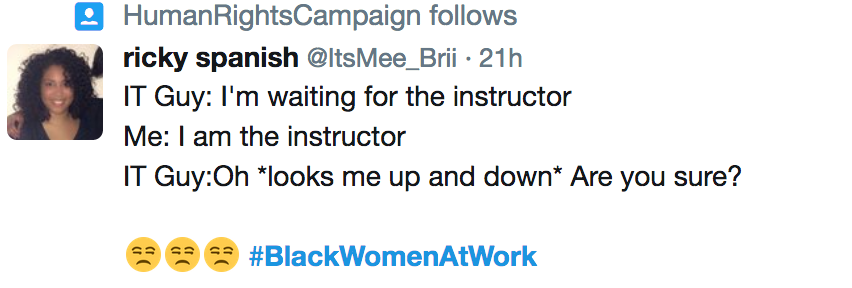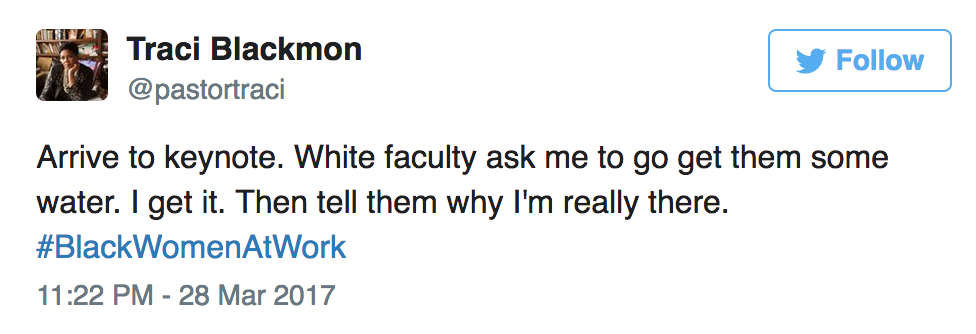Difficult conversations, tough realizations
I wrote this post about “difficult conversations” two weeks ago. But it was late and I was tired and it’s such an important subject I didn’t want to publish it before I had some sleep and re-read it. I found it in my drafts folder today; turned out it didn’t need much cleaning up at all. And, sadly, the subject remains relevant So here you are.
I’ve been resisting Anna Marie Cox’s new podcast, Friends Like These for a while. She advertises it as being about the “difficult conversations” we have with one another—or, more accurately, don’t have often enough. I’ve heard her talk with a pastor whose flocks (he has churches in two different counties of some midwestern state I’ve forgotten) both voted for Trump. And she draws heavily on the expertise of her colleagues at MTV News, which brings more people of color to the microphone than the white bread podcasts run by her colleagues at Crooked Media (yes, that’s the company’s real name).
But the podcast I listened to today—already a couple of weeks old—got me thinking in a new way. Part of it focused on conspiracy theories. Cox and her guest Adam Savage contended that while the crap that’s going/has gone on with Russia is clearly important, our pursuit of the conspiracy at least partly serves to distract us from the even more depressing thought of the millions of Americans who needed no outside persuasion whatsoever to vote for Velveeta Voldemort.
That’s the real scandal here. We have turned into a country of intolerant people.
No—it’s a more difficult conversation than that:
“We have always been a country of intolerant people, but it’s no longer possible to ignore that.”
For many educated white people like me, who have been living in a Disneyland Shondaland where Diversity and Inclusion seem to increase daily, this comes as quite a shock.
Lava pools of racism and sexism, religious intolerance, xenophobia, homophobia have been bubbling beneath the surface of our society for decades. It was only a matter of time before they burst to the surface, like the volcano that lurks beneath Wyoming. There’s a volcano underneath Wyoming? Yes, according to yet another podcast, Stephen Dubner’s highbrow trivia contest, Tell Me Something I Don’t Know.
Difficult conversations with myself
Anyway, the bubbling lava pools of intolerance shocked the hell out of me, and a good percentage of polite society, when they burst out, seemingly ten minutes after the election results were announced. I said “polite society,” meaning the kinds of people who don’t go around creating swastika-covered cupcakes at birthday parties. But really “polite” is not the right word, though it rhymes with it:
White.
Yep, even though I like to think of myself as “diverse”—y’know, because I married a woman and all—I have had no freaking clue what’s been going on in my own country to people whose skin are, as Oscar Hammerstein put it, “a different shade.”
Oh, I haven’t been living under a rock: I know about the black youth killed by police, the unrest. I know Black Lives Matter. And Muslim Lives. And Trans Lives. I know we can’t disappear them into the seemingly tidy package of “All Lives Matter,” because one of the things that matters about Black and Muslim and Trans lives is that they deserve to be visible.
But the daily drumbeat of unconscious bias, the kind of stuff you’ll find under the Twitter hashtag #BlackWomenAtWork—really, I thought we were past all that.
We’re not. Take a look at some of the tweets collected in this Essence article:



Every problem looks like a nail
Someone said “When the only tool you have is a hammer, every problem looks like a nail.”
My particular “hammer” is communicating. But, really, wouldn’t that help? If we all learned to speak our truths, if we had the guts to call out people who behave like this, and the tools to make our case forcefully—wouldn’t that help? Would they be difficult conversations? Sometimes, you bet. But the alternative is allowing these unconscious biases to stand. And that will not end well for anyone.
We allies have a responsibility to speak up. Grab that word-hammer and use it. Even—especially—when the conversations get difficult.